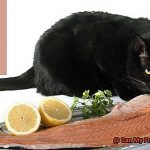Can My Frenchie Eat Melon?
Welcome to our juicy discussion about a question that’s been bouncing around in every devoted French Bulldog owner’s mind – can our adorable pups chow down on the mouthwatering goodness that is melon? Well, worry no more, my friends, because today we’re embarking on an enlightening journey to uncover the truth.
French Bulldogs, with their squishy faces and irresistible charm, have stolen the hearts of dog lovers worldwide. And as responsible pawrents, we only want what’s best for our furry companions. In our quest for the perfect diet for our Frenchie buddies, we often stumble upon dilemmas when it comes to specific foods like melon.

So, is melon a fruity feast or a forbidden treat for our Frenchies? Join us as we dive deep into the nutritional benefits, potential drawbacks, and necessary precautions to determine whether they can safely savor this lip-smacking delight. Let’s debunk the myth and make sure our furry pals indulge in all the right fruits.
Nutritional Benefits of Melons for French Bulldogs
Contents
- 1 Nutritional Benefits of Melons for French Bulldogs
- 2 Potential Risks of Feeding Melon to French Bulldogs
- 3 Preparing Melon for Your Frenchie
- 4 Moderation is Key When Feeding Melon to Your French Bulldog
- 5 Sugar Content in Melons and Its Impact on French Bulldogs
- 6 Additional Considerations When Feeding Melon to Your Frenchie
- 7 Conclusion
Are you looking for a tasty and nutritious treat for your furry friend? Look no further than melons. These delicious fruits not only satisfy your Frenchie’s taste buds but also provide numerous health benefits. In this blog post, we will explore the nutritional benefits of melons for French Bulldogs and how to incorporate them into their diet.
Hydration Heroes:
French Bulldogs are notorious for their short snouts and respiratory issues, which can make them prone to dehydration. But fear not. Melons, such as watermelon, cantaloupe, and honeydew, are here to save the day. These juicy fruits have a high water content that can help keep your Frenchie hydrated and promote overall health and well-being. So, when the summer heat is on, treat your pup to a refreshing slice of melon.
Vitamins Galore:
Melons are not only hydrating but also packed with vitamins that are essential for your Frenchie’s health. Vitamins A and C, found in abundance in melons, play a crucial role in maintaining a strong immune system, supporting healthy skin and coat, and promoting good eye health. So, by adding melons to your Frenchie’s diet, you’re giving them a boost of vitamins that will keep them feeling their best.
Antioxidant Powerhouses:
Did you know that melons are rich in antioxidants? These powerful compounds help protect cells from damage caused by harmful free radicals. By including melons in your Frenchie’s diet, you can reduce the risk of chronic diseases and promote longevity. So, let your furry friend indulge in some antioxidant-rich melon goodness.
Fiber-Filled Goodness:
Healthy digestion is essential for French Bulldogs, and melons can help with that too. Melons are a great source of fiber, which promotes healthy digestion and can prevent constipation or other digestive issues. Plus, fiber provides a feeling of fullness without adding excess calories, making it a paw-some aid in weight management for Frenchies who need to watch their waistlines.

Deliciously Low in Calories and Fat:
If you’re worried about your Frenchie’s weight, melons are the perfect treat. Not only are they low in calories, but they are also fat-free. This means that you can treat your pup to some melon goodness without worrying about unnecessary weight gain or contributing to obesity. So, go ahead and share a melon moment with your Frenchie guilt-free.
Potential Risks of Feeding Melon to French Bulldogs
We all know how much our furry friends adore treats, and who can resist those adorable begging eyes when we’re enjoying some melon on a hot summer day? But before you toss a slice of melon to your four-legged companion, let’s take a closer look at the potential risks involved.
- Sugar Rush: One of the biggest concerns with feeding melon to French Bulldogs is its high sugar content. While a small amount of natural sugars won’t harm them, overindulgence can lead to weight gain and even diabetes in the long run. Moderation is key, folks.
- Tummy Troubles: Melons are high in fiber, which can be beneficial for dogs in moderation. However, too much melon at once can cause tummy turmoil, resulting in diarrhea or an upset stomach for our beloved Frenchies. Remember, a little goes a long way.
- Breathing Blues: French Bulldogs are known for their adorable squished faces, but it also means they may have difficulty eating certain foods, including melon. The size and texture of melon chunks can pose a choking hazard or make it challenging for them to chew and swallow properly. Safety first, folks.
- Allergy Alert: Just like humans, some French Bulldogs may have allergies or sensitivities to certain fruits, including melons. Keep a close eye on your furry pal after introducing melon into their diet. If you notice any signs of an allergic reaction like itching or skin rashes, it’s best to steer clear of melons in the future.
- Rind and Seeds: While we’re on the subject, let’s not forget that not all parts of the melon are safe for our furry friends. The rind and seeds can be difficult for dogs to digest and may cause gastrointestinal blockages. So, be sure to remove them before offering melon as a treat.
Now that we’ve uncovered the potential risks, it’s important to make an informed decision about feeding melon to your French Bulldog. Remember to consult with your veterinarian before making any significant changes to your pup’s diet.
Preparing Melon for Your Frenchie
Summer is here, and what better way to beat the heat than with a juicy slice of melon? But before you share this refreshing treat with your French bulldog, it’s important to know how to prepare it properly to ensure their safety and health. As an expert in all things Frenchie, I’m here to guide you through the process.
- Choose the Right Melon: When picking a melon for your Frenchie, opt for ripe and fresh ones. Overripe or spoiled fruits can upset their delicate tummies. Whether it’s sweet watermelon or succulent cantaloupe, look for vibrant colors, firm flesh, and a pleasant aroma.
- Remove the Seeds and Rind: Before serving melon to your Frenchie, make sure to remove the seeds and rind. These can be difficult for them to digest and may cause digestive issues. Cut the melon into small, bite-sized pieces that are easy for them to chew and swallow.
- Serve in Moderation: While melon is a healthy fruit, moderation is key. Too much of a good thing can lead to digestive problems like diarrhea or an upset stomach. Start by offering a small amount and observe how your Frenchie reacts. If they tolerate it well, you can gradually increase the portion size.
- Freeze for a Refreshing Treat: For an extra cooling treat, consider freezing small melon pieces. This can be a great way to keep your Frenchie hydrated and entertained during hot summer months. Just make sure the frozen pieces are small enough for them to safely enjoy.
- Introduce Slowly: As with any new food, it’s important to introduce melon slowly and in small quantities. This allows you to monitor your Frenchie’s reaction and ensure they tolerate it well. If you notice any signs of discomfort or digestive issues, it’s best to consult with your veterinarian.
Remember, I’m just an expert in Frenchies, not a veterinarian. So, before making any changes to your Frenchie’s diet, always consult with your trusted vet. They can provide personalized advice based on your dog’s specific needs and health conditions.
Moderation is Key When Feeding Melon to Your French Bulldog
We all love treating our furry friends to something special, and melon can be a refreshing and nutritious treat for your French Bulldog. However, it’s important to keep in mind that moderation is key when it comes to feeding melon to your Frenchie. While melon can provide various health benefits, overfeeding can lead to digestive issues and potential health problems.
Melons are packed with vitamins and minerals that can support your Frenchie’s overall health. They are rich in vitamin A, which is beneficial for their vision, immune system, and skin health. Melons also contain vitamin C, which can boost their immune system and help fight off infections. Additionally, melons are a good source of hydration as they are composed mostly of water, which is essential for your Frenchie’s overall well-being.
However, it’s crucial to remember that melons should only be given as an occasional treat and not as a staple food in their diet. Feeding too much melon to your French Bulldog can lead to digestive issues such as diarrhea or an upset stomach. Melons are also high in sugar, so excessive consumption can contribute to weight gain and potential health problems like diabetes.
When offering melon to your Frenchie, it’s important to remove the seeds and rind. These parts of the fruit can pose a choking hazard or cause digestive blockage. It’s best to cut the melon into small, bite-sized pieces that are easy for your Frenchie to chew and digest. Monitor their reaction after eating melon and look out for any signs of discomfort or digestive issues. If you notice anything concerning, it’s always a good idea to consult with your veterinarian.
In conclusion, moderation is key when it comes to feeding melon to your French Bulldog. While melons can provide health benefits, they should only be given as an occasional treat and not as a regular part of their diet. Remember to remove the seeds and rind, offer small pieces, and monitor their reaction. By following these tips, you can safely enjoy melon with your Frenchie and keep them happy and healthy.
Sugar Content in Melons and Its Impact on French Bulldogs
Today, we’re going to talk about a fruity topic that might surprise you – the sugar content in melons and its impact on our beloved Frenchies. While melons are a delicious and refreshing treat, it’s important to understand the potential risks associated with their high sugar content. So, grab a cup of café au lait and let’s dive into this juicy discussion.
The Sweet Truth about Melons:
Melons, such as watermelon, honeydew, and cantaloupe, are naturally sweet fruits that can make your Frenchie’s taste buds dance with delight. However, they also contain a significant amount of natural sugars that can lead to health issues if consumed excessively. Here’s what you need to know:
Weight Gain Woes:
Just like we humans can pack on the pounds from indulging in sugary treats, our French Bulldogs are not immune to weight gain. These adorable pups are prone to obesity, which can result in joint problems, difficulty breathing, and even heart disease. To keep your Frenchie’s figure fab, limit their melon intake and opt for smaller portions.
Dental Dangers:
Sugar can be a real “pain in the tooth” for our furry friends. The natural sugars found in melons can stick to their teeth and promote the growth of bacteria, leading to plaque buildup and dental issues. To avoid “fangtastic” troubles, make sure to brush your Frenchie’s teeth regularly and provide dental chews or treats that help maintain their pearly whites.
Blood Sugar Blues:
Did you know that dogs have a different metabolism than humans? Excessive sugar consumption can cause a rollercoaster ride for your Frenchie’s blood sugar levels. A rapid spike followed by a crash can leave them feeling lethargic, thirsty, and even lead to serious conditions like diabetes. Keep an eye on their sugar intake and consult with your vet if you notice any unusual symptoms.
A Balancing Act:
Now, before you banish melons from your Frenchie’s diet altogether, let’s talk about the flip side of the fruity coin. While excessive sugar can be a concern, melons also offer nutritional benefits for our four-legged friends:
- Essential vitamins: Melons are a treasure trove of vitamins A and C, which support your Frenchie’s vision, immune system, and skin health.
- Hydration heroes: With their high water content, melons can quench your Frenchie’s thirst and provide a refreshing snack during those hot summer days.
Finding the Sweet Spot:
The key to incorporating melons into your Frenchie’s diet is moderation. Treat them to small, bite-sized pieces of melon as an occasional snack rather than a staple part of their diet. Remember to remove the seeds and rind before serving to prevent any digestive mishaps.
Additional Considerations When Feeding Melon to Your Frenchie
Moderation is Key
- Melon should only be given as an occasional treat and not as a regular part of their diet.
- Consult with your veterinarian about the appropriate portion size for your Frenchie.
Type of Melon Matters
Watermelon:
- Remove the rind and seeds before offering it to your Frenchie.
- The rind can be difficult to digest and may cause gastrointestinal upset.
- The seeds can pose a choking hazard or cause intestinal blockages.
Cantaloupe:
- Remove the outer skin and seeds before serving it to your Frenchie.
- The skin can be tough and difficult for dogs to chew and digest.
- The seeds can present a choking hazard.
Honeydew Melon:
- Remove the skin and seeds before offering it as a treat.
Wash Thoroughly
- Always wash the melon thoroughly before serving it to your Frenchie.
- This helps remove any dirt or pesticides that may be present on the skin, reducing the risk of ingestion of harmful substances.
Watch for Adverse Reactions
- While most dogs tolerate melon well, some may have individual sensitivities or allergies.
- If you notice any symptoms such as stomach upset, diarrhea, vomiting, or changes in behavior after feeding melon, discontinue giving it and consult with your veterinarian.
Conclusion
In conclusion, the answer to the question “Can my Frenchie eat melon?” is a resounding yes. Melons are not only delicious but also provide a plethora of nutrients that can benefit your French Bulldog’s health. However, it is crucial to approach melon consumption with caution and moderation.
Melons offer a refreshing way to keep your Frenchie hydrated, thanks to their high water content. They are also packed with essential vitamins and antioxidants that support overall well-being. Additionally, the fiber in melons aids in digestion and promotes a healthy gut.
Nevertheless, there are potential risks associated with feeding melon to your Frenchie. The seeds and rind should be removed before serving as they can pose choking hazards or lead to digestive issues. It is advisable to start with small portions and closely observe your dog for any signs of discomfort or adverse reactions. Consulting with your veterinarian beforehand is always wise when introducing new foods into your Frenchie’s diet.
Another aspect to consider is the high sugar content in melons. Excessive consumption can contribute to weight gain, dental problems, and blood sugar imbalances. To avoid these issues, limit the amount of melon you give your Frenchie and treat it as an occasional indulgence rather than a regular addition to their meals.
By following these guidelines tailored to your Frenchie’s individual needs and sensitivities, you can safely incorporate melons into their diet. Remember that moderation is key when treating your furry friend to this sweet and juicy delight.




